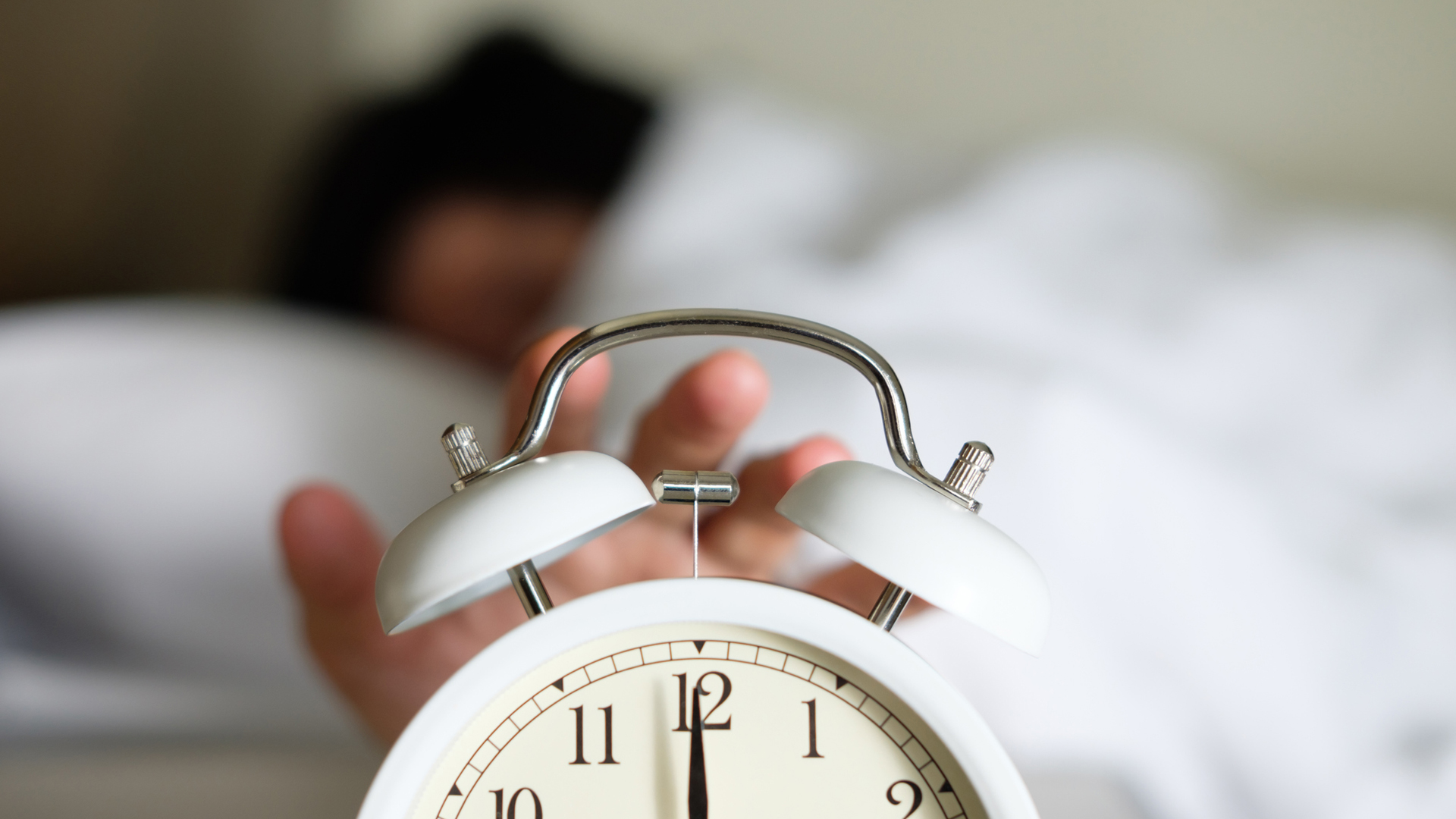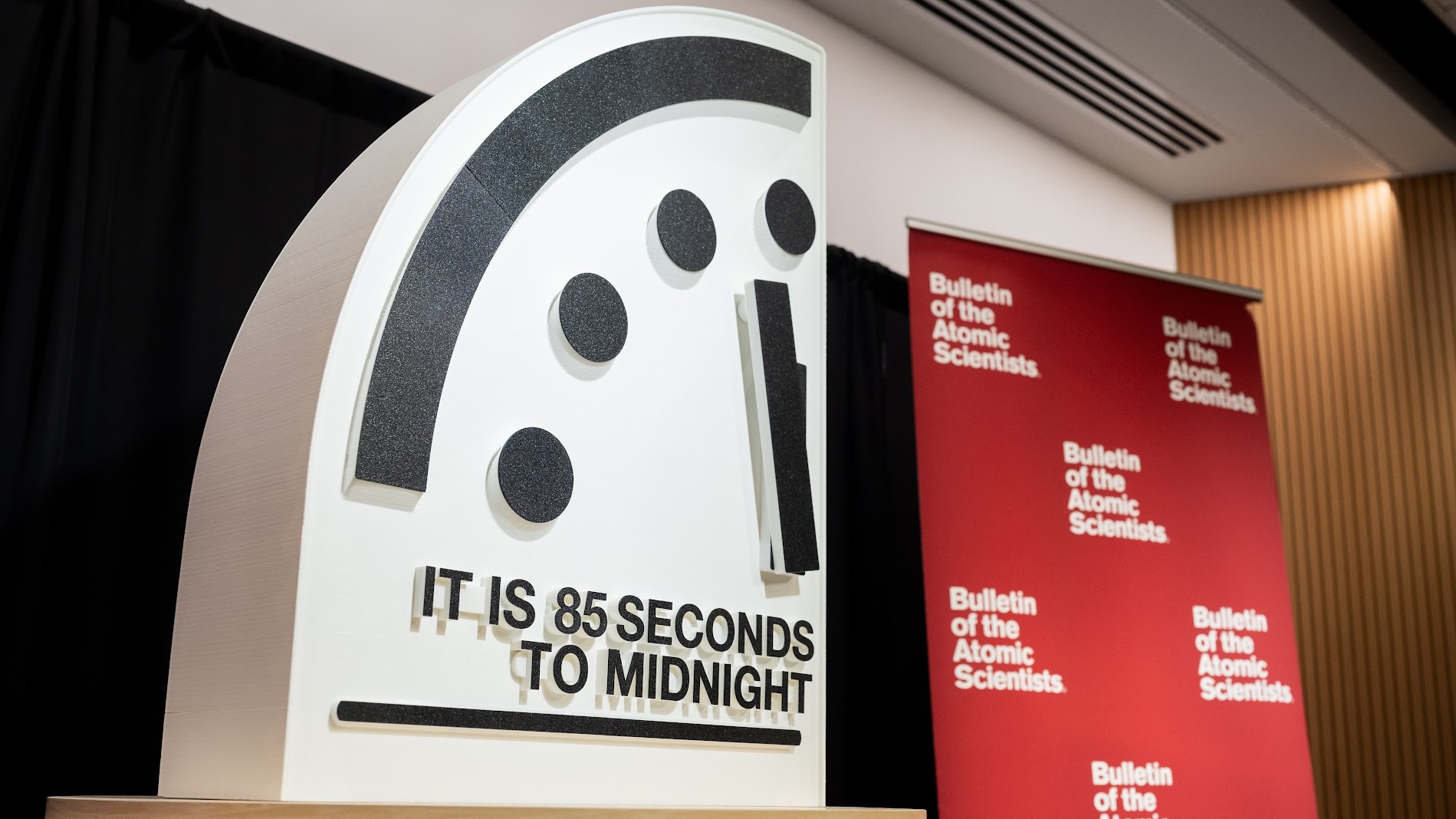What is a circadian rhythm?
A circadian rhythm refers to a person's sleep-wake pattern over 24 hours.

A circadian rhythm is a 24-hour cycle dictated by the body's internal clock, which is controlled by several physiological mechanisms. Most plants and animals have a circadian rhythm, and in humans it affects when people feel sleepy, wake up and want to eat.
The National Institutes of Health found that the body's master clock is controlled in an area of the brain called the suprachiasmatic nucleus (SCN), located inside the hypothalamus (the human brain's control center). The SCN receives different signals from the body, which it then responds to to set the body’s clock.
"The SCN is affected by various external cues, such as temperature and exercise, but it is most sensitive to light and therefore any changes in light impact on the signals sent by the SCN to the rest of the body which regulate the circadian rhythm," said Maja Schaedel, a clinical psychologist and co-founder of The Good Sleep Clinic in the U.K. "This then plays a crucial role in our sleep-wake cycle which is how our body ensures we are able to sleep at night and be alert and awake during the day," Schaedel told Live Science.

Maja Schaedel is an experienced clinical psychologist with a specialism in insomnia, sleep difficulties and trauma. She currently holds a position in the Sleep Disorder Centre at Guy's & St Thomas' NHS Foundation Trust in England. Schaedel has a doctorate in clinical psychology and is accredited by the Health & Care Professions Council (HCPC) and the British Psychological Society (BPS).
One of the key ways the SCN sets the body’s clock is by instructing the body to release hormones — in particular melatonin, leptin and cortisol.
"Some experts say that the most accurate way to tell at which time the clock is 'set' is to look at the timing of the release of the hormone melatonin," said Dr. Vaughn McCall, chair of the Department of Psychiatry and Health Behavior at the Medical College of Georgia at Augusta University. This is the “master regulator” of the circadian clock, although other hormones are also involved.
Melatonin is released in dark or dim-light conditions, usually about two to three hours before sleep, he added.
"So under conditions of darkness, if a person has been habitually and easily falling asleep in the evening around 11 p.m., the melatonin concentration in the blood or saliva will start to rise between 8 to 10 p.m.," McCall said.
Get the world’s most fascinating discoveries delivered straight to your inbox.
Cortisol is a hormone secreted by the adrenal gland that helps regulate many of the metabolism of sugars, proteins, and fats. Circulatory cortisol levels are highest in the morning just before waking up, gearing the metabolism up for the day and gradually decreasing throughout the day.
What disrupts circadian rhythm?
Several factors affect a person's circadian rhythm, including genetics. "Our age also has an impact," Schaedel said. "For example, our circadian rhythms are usually pushed back by an hour or two when we become teenagers and are pulled back earlier when we get into our old age."
A person’s circadian rhythm can change or be disrupted in a number of other ways. "Sometimes humans engage in behaviors that are not in sync with their bodily rhythms, such as flipping back and forth between daytime shifts and nighttime shifts," McCall said. "This might lead to a 'circadian disorder' and the person would then have a variety of complaints such as tiredness, insomnia or gastrointestinal problems."
Nowadays, humans are also exposed to a considerable amount of artificial light, especially in the evening hours when the circadian system is most sensitive. Light from LED screens has been found to interfere with sleep and melatonin secretion, according to a 2019 study in the journal Somnologie.

Circadian disruption is likelier when melatonin production is disrupted, such as in shift workers who are exposed to bright light during hours they would normally be asleep, according to a 2021 review in the journal Nutrients. Melatonin helps tell the body it is sleepy and its release is affected by light exposure, so when that light is irregular or people are sleeping during daylight hours, it can upset circadian rhythm and cause difficulty sleeping.
Disruptions to circadian rhythm may also change the release of hunger hormones, glucose metabolism and mood, according to a 2014 review in the journal International Review of Psychiatry. All of these factors can influence a person's eating behaviors, particularly the hormone ghrelin, which is released by the stomach to tell the body it needs food. A 2019 randomized controlled trial published in the International Journal of Obesity found that "circadian misalignment increased appetite for energy-dense food".

Lou Mudge is a health writer based in Bath, United Kingdom for Future PLC. She holds an undergraduate degree in creative writing from Bath Spa University, and her work has appeared in Live Science, Tom's Guide, Fit & Well, Coach, T3, and Tech Radar, among others. She regularly writes about health and fitness-related topics such as air quality, gut health, diet and nutrition and the impacts these things have on our lives.
She has worked for the University of Bath on a chemistry research project and produced a short book in collaboration with the department of education at Bath Spa University.
 Live Science Plus
Live Science Plus





